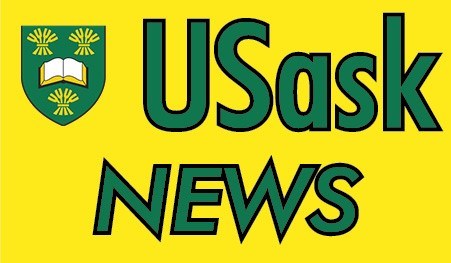SASKATOON – The University of Saskatchewan (USask) has been named one of the 15 winners of the North American 2020 TD Ready Challenge presented by TD Bank Group.
Thanks to a $650,000 grant from TD Bank Group, researchers with the First Nations and Métis Health Research Network (FMHRN) based at USask, alongside partners Federation of Sovereign Indigenous Nations (FSIN) and Métis Nation-Saskatchewan (MN–S), will work to transform emergency response in First Nations and Métis communities during the COVID-19 pandemic and beyond. This timely research will also help emergency response planners better meet the needs of Elders, women, girls, and gender-diverse people with training and support, particularly at evacuation sites and during COVID-19 restrictions.
The research is led by Dr. Caroline Tait (PhD), a medical anthropologist with expertise in gender and cultural safety in the USask College of Medicine and a member of Métis Nation-Saskatchewan (MN–S), and Dr. Simon Lambert (PhD), an Indigenous (Māori) researcher in the College of Arts and Science with expertise in Indigenous disaster risk reduction, and a member of the Tūhoe and Ngāti Ruapani tribes from Aotearoa New Zealand. Dr. Tait leads the FMHRN Saskatchewan’s Network Environments for Indigenous Health Research (NEIHR) centre, and this team co-leads the national co-ordinating centre for the nine NEIHR networks across Canada, funded by the Canadian Institutes of Health Research (CIHR).
“It’s very important that people who have been impacted by disasters are involved in developing services that take cultural safety and gender into consideration,” said Tait. “First Nations and Métis peoples are best placed to lead these initiatives for our communities.”
The research will focus on mitigating how natural disasters, including COVID-19, threaten First Nations and Métis communities. Elders, children and youth are most vulnerable, as the first people to be evacuated or asked to socially isolate during emergency response protocols. In cases of evacuation, these people, along with their caregivers (mostly women), are relocated to cities sometimes for weeks or months.
Indigenous people in Saskatchewan have voiced criticism about their evacuation experiences. Problems include inadequate accommodations, family members being separated, youth being targeted in cities by drug dealers and gangs, and girls and women being vulnerable to sexual exploitation and assault. COVID-19 restrictions are correlated with increases in domestic violence, substance abuse, food and housing insecurity, and re-traumatization.
Including Indigenous voices and perspectives is key to disaster risk reduction, and can be an act of reconciliation, said Lambert.
“Indigenous people are on the ground in their communities, know each other, know who needs help, and know what they’re doing,” he said. “We know that the best response to any disaster is culturally attuned to the people who are impacted, undertaken in a safe and respectful manner.”
This is a collaborative project of the FMHRN, combining leadership from the FSIN, representing 74 Saskatchewan First Nations, and MN–S, representing Métis citizens across the province, and USask researchers.
“This project will provide researchers with an opportunity to hear the voices of Métis people and learn from their experiences and perspectives, respecting their unique identity, culture and values. This will help further develop emergency services and training to improve the overall wellness of our citizens,” said Marg Friesen, MN–S Minister of Health.
FSIN Vice-Chief David Pratt noted, “Through involvement in projects like this, First Nations peoples in Saskatchewan are now positioned to assert their Indigenous perspective on health research, and reclaim a voice that contributes to the dismantling of old order research practices.”
The 2020 TD Ready Challenge encouraged applicants from across TD’s North American footprint to support innovative solutions that will help create accelerated, sustained and equitable recovery in the face of COVID-19, specifically for communities disproportionately impacted by the pandemic. In total, TD awarded $10 million for the 2020 Challenge.
"The University of Saskatchewan has brought forward a creative and scalable solution to help communities disproportionately impacted by the effects of COVID-19," said Global Head, Sustainability and Corporate Citizenship, TD Bank Group, Andrea Barrack. “Being a recipient of a TD Ready Challenge grant is a testament to the dedication of its creators to helping our communities emerge from the pandemic more resilient, inclusive, and ready for the continually changing future."
“We are honoured to be one of only fifteen institutions in North America to receive this funding, and are grateful to TD Bank for its support,” said USask President Peter Stoicheff. “Our health researchers together with their Indigenous partners are responding to the real needs and challenges of our world, and it is gifts such as this that allow the University of Saskatchewan to work collaboratively with the communities we serve. In times like this we can — and must — be the university the world needs by identifying opportunities to solve the pressing issues that affect people’s lives.”
A full list of the 2020 TD Ready Challenge grant recipients, as well as more information about the initiative, can be found at www.td.com/readychallenge.




